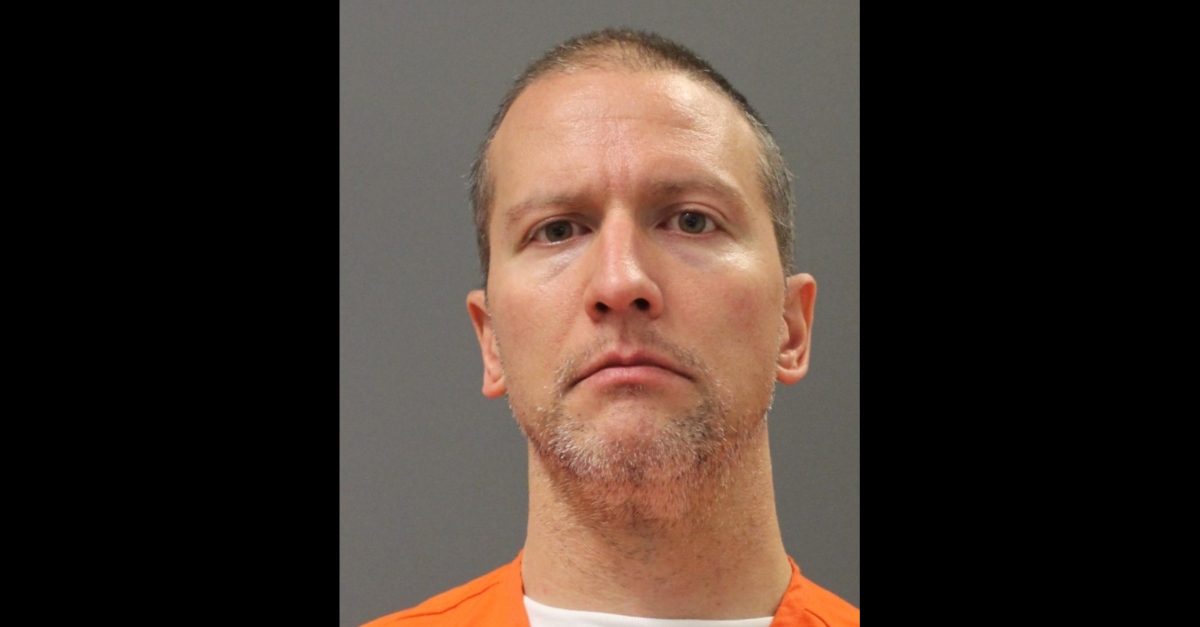
Derek Chauvin
An attorney for Minnesota murder defendant and former police officer Derek Michael Chauvin, 44, is taking a court to task for a new gag order issued last week in the George Floyd murder case. If anyone should be subject to a gag order, it should be prosecutors, argued the defense.
“The Court issued its order sua sponte, without sufficient notice to Defendant, without citing legal authority, and without a hearing,” attorney Eric J. Nelson said in a motion dated Monday.
Chauvin is charged as the lead defendant in the death of 46-year-old George Floyd. He kneeled on the victim’s neck during an arrest for 8 minutes and 46 seconds, even after the Floyd became unresponsive, prosecutors said. As seen on video, co-defendant Tou Thao stood between Chauvin and bystanders, who were livid at how the cops were treating Floyd. Thao also wants the gag order lifted. J. Alexander Kueng and Thomas Lane restrained Floyd’s back during the incident, according to authorities.
All four officers were fired from the Minneapolis Police Department. Kueng, Lane, and Thao are charged with aiding and abetting second-degree murder and aiding and abetting second-degree manslaughter. Chauvin faces the most serious case: second-degree murder, third-degree murder, and manslaughter.
The defendants seem geared to fight charges, with their attorneys consenting to video coverage of their trials. Media attention is one thing. Engaging with it is another. Hennepin County Judge Peter A. Cahill issued a gag order on Thursday, saying he learned about “two or more attorneys” talking to the media about the case following a motion to dismiss from Lane. That’s defendant’s attorney Earl Gray did speak to the Star Tribune on Wednesday.
The judge asserted more pretrial publicity will risk tainting the possible jury pool, and “all parties’ right to a fair trial.”
But Nelson asserted that it was unfair for the gag order to cover him and Chauvin. They hadn’t even spoken to the press, he said.
“There is absolutely no reason that Mr. Chauvin’s case or counsel should be treated the same as those of his codefendants,” Nelson wrote. “His counsel has not spoken to the media, he is facing a different set of charges, and his rights were not addressed by the Court when it issued the gag order.”
To be sure, he declined to comment when Law&Crime reached out in a previous story on Chauvin.
Nelson criticized the court for its handling of the gag order:
This Court cites no statute, rule, or case to support its sua sponte gag order. In fact, the only authority cited at all in the order is a reference to Minn. R. Crim. P. 25.03—under which the Court insists it’s not restricting access to public records in this case. Because it’s the only authority cited by the Court, however, one must presume that this is the rule from which the Court attempts to derive its authority to issue such an order. However, the plain language of rule 25.03, states that a “restrictive order may be issued only on motion, and after notice and hearing.”
He also questioned the court’s logic that the gag order would protect the right to a fair trial.
“However, the Constitutional right to a fair and public trial by an impartial jury belongs to the Defendant—not the State,” he said. The attorney asserted that if there’s any gag order, it should cover the the prosecution.
From the motion:
If anything, the gag order should apply only to the State and county prosecutors, who have enjoyed a lengthy, unrestricted media honeymoon, during which to comment and posit and discuss this case at length—likely in violation of their ethical duties to “refrain from making extrajudicial comments before or during trial that promote no legitimate law enforcement interests and that serve solely to heighten public condemnation of the accused.”
Matt Naham contributed to this report.
[Mugshot via Minnesota Department of Corrections]